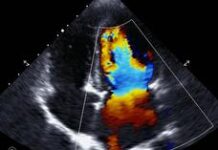Targeted therapy recommendations can be made based on the molecular profiles of tumour samples from patients with metastatic malignant mesothelioma (MM) according to findings presented at the MAP 2020 Virtual Congress. In addition, molecular profiling also demonstrated gender specific differences in gene expression that could guide the choice of treatment.
HousseinTaghizadeh, Oncology, Universitätsklinik für Innere Medizin I in Vienna, Austria and colleaugues employed a new approach to the treatment of MM, an aggressive cancer that carries a poor prognosis. The investigators assessed the feasibility and the gender aspects of targeted therapy recommendations made for treatment of MM based on each patient’s individual molecular tumour profile.
They conducted this single-center, real-world retrospective analysis in a subgroup of patients in their institution’s platform for precision medicine, which has so far profiled 570 patients with various advanced and therapy‐refractory cancer types.
The analysis comprised 9 male and and 5 female patients diagnosed with pleural or peritoneal MM who provided tumour samples. The investigators aimed to detect molecular aberrations in the tumours that could be targeted by off-label therapy custom-tailored to the individual patient.
Molecular profiling of MM was performed using next-generation sequencing to determine the genetic components of the samples, protein expression was evaluated by immunohistochemistry (IHC), and fluorescence in situ hybridisation was used to depict chromosomal translocations.
Targeted therapies could be suggested according to gender differences in expression of PDGFRα
The study comprised 11 patients with pleural and 3 patients with peritoneal MM with a median age at the time of molecular profiling of 57.8 (range, 34 to 74 years). All the patients had the epithelioid subtype of MM, excepting one patient with a biphasic subtype. Eight patients had relapsed disease. Fourteen patients had received 1 to 3 prior systemic cisplatin and pemetrexed chemotherapy, 5 had received radiotherapy, and 8 had undergone surgical treatment.
Eleven mutations were found in 6 of the 14 tissue samples that included BAP1, FANCA, NF1, NF2, PD-L1, RAD52D, SETD2, SRC, and TP53; no mutations were detected in the samples of 8 patients. IHC results showed elevated expression levels of EGFR, p‐mTOR, and PTEN in 12 patients, elevated expression levels of PD‐L1 and MET in 4 patients, as well as PDGFRα in 6 patients and PDGFRβ in 4 patients.
Based primarily on the molecular characteristics determined by IHC, targeted therapy was recommended for 11 (79%) patients.
Targeted therapy recommendations could be made significantly more often for men than women due to gender-specific differences in PDGFRα expression, which was expressed in 6 of 9 men compared with 0 of 5 women (p = 0.016).
The type of the recommended targeted agents underscored the gender specific differences in PDGFRα expression, with multi-targeted tyrosine kinase inhibitors sunitinib and dasatinib only recommended for male patients. Cetuximab and pembrolizumab each were recommended for 3 patients and everolimus for one patient.
Seven patients did not receive the recommended targeted therapy due to deterioration of performance status, death, refusal of further treatment or the treating oncologist favoured another treatment regimen.
The recommended targeted therapy was administered to 4 (36%) patients; however, 3 died due to disease progression before restaging could be performed.
One male patient with peritoneal MM treated with 200 mg nintedanib tablets twice daily for 21 days achieved stable disease for 3 months.
These findings were also published in Thoracic Cancer.
Conclusions
The authors asserted that to their knowledge, this is the first information regarding patients with metastasised MM that is refractory to the standard treatment where individual molecular aberrations in the tumours has been translated into specific therapeutic recommendations. These findings suggest that a molecular guided treatment approach is feasible for the management of advanced malignant mesothelioma.
In addition, they provided the first evidence that patients with MM have gender specific differences in PDGFRα expression that should be further evaluated in clinical trials.
They noted that their study was limited due to the small sample size.
No external funding was disclosed.
Reference
10P – Taghizadeh H, Zöchbauer-Müller S, Mader RM, et al. Gender differences in molecular guided therapy recommendations for metastatic malignant mesothelioma. MAP 2020 Virtual Congress (9-10 October 2020).







